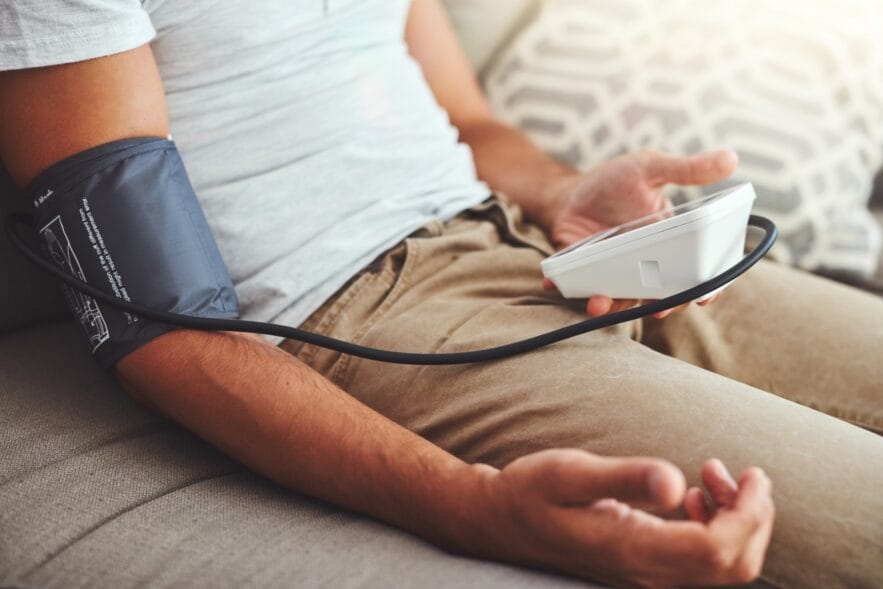In 2019, Kyle visited her primary care physician for a routine checkup and sought help for the menopause symptoms that were disrupting her daily life. She had hot flashes, anxiety, stomach problems, and severe sleep disturbances. “I had every menopause symptom known to mankind,” she recalls.
A friend had started menopausal hormone therapy (also known as hormone replacement therapy) and told Kyle it had been a game changer, so Kyle — whose last name is being withheld to protect her privacy — asked her doctor about it.
Instead of recommending traditional hormone therapy, Kyle’s doctor suggested she try an antidepressant, a common alternative to hormone therapy, to ease her symptoms instead. The physician suggested Effexor (venlafaxine), noting that it had worked well for her own menopause symptoms.
Taking her doctor’s advice, Kyle started on a low dose of 75 milligrams per day, which was later increased to 150 milligrams over the next several months. “I was tired a lot,” she recalls, “but I didn’t think much of it.”
But soon, she had no choice but to think about it.
After nearly a year on Effexor, Kyle was getting her hair done when she lifted her head from the sink and was suddenly hit with a wave of dizziness. Her hairdresser told her she wasn’t acting normal. “You’re really vacant,” Kyle remembers her saying. “You’re just not with me. I think you need to go to the clinic.”
So Kyle went to a health clinic, where a provider took her blood pressure and immediately urged her to get to the emergency room. “My blood pressure was 225/160,” says Kyle. A blood pressure reading higher than 180/120 is considered hypertensive crisis, an emergency situation.
Once at the emergency room, doctors watched Kyle for hours to make sure she didn’t have a stroke, then sent her back to her primary care doctor.
Kyle’s primary care doctor blamed her blood pressure spike on the fact that she smokes cigarettes. Then, she prescribed lisinopril, a medication to lower blood pressure, but kept her Effexor dose unchanged. Kyle took it upon herself to monitor her blood pressure daily.
After a week on the new medication, her blood pressure was still dangerously high, so Kyle’s doctor lowered her Effexor dose back to 75 milligrams. “I had wild withdrawal symptoms,” explains Kyle. “My heart was beating too fast. [And I had] terrible headaches.”
Because of these withdrawal symptoms, her doctor added yet another medication to the cascade to control her heart rate.
About three years after Kyle had initially been prescribed Effexor, she moved abroad, and asked her new doctor about tapering off the medication. Effexor had helped her sleep better, but hadn’t improved her other menopausal symptoms that much, and she suspected it was the root of her new blood pressure issues.
It took about two months to fully taper off Effexor, but once she was off the medication, Kyle’s blood pressure returned to normal. Her new doctor also gradually discontinued her blood pressure medication, instructing her to monitor her readings for several months to ensure they remained stable.
Looking back on the three years she spent on Effexor while struggling to control her blood pressure, Kyle describes the experience as “absolute hell.”
Though Kyle’s experience with a hypertensive crisis caused by Effexor is rare, she’s not alone. In 2014, doctors published a case study describing a 23-year-old man who was sent to the hospital after he showed up in a medical clinic with a headache and nosebleed 10 months after his Effexor dose had been raised from 75 milligrams to 150 milligrams. His blood pressure was recorded at a dangerously high 210/170 mmHg. It returned to normal after he stopped taking Effexor.
What Is Effexor Used to Treat?
Effexor is an antidepressant that has been linked to both gradual and sudden blood pressure changes, raising the risk of headaches, strokes, and falls — even months after starting or adjusting the dose.
The FDA approved Effexor to treat depression in 1993. The drug is a selective serotonin norepinephrine reuptake inhibitor (SNRI), a type of antidepressant often used to treat depression, anxiety and related conditions such as obsessive compulsive disorder, explains Jasmine Sawhne, M.D., a psychiatrist who provides care to patients in New York and California via telehealth.
The most widely used antidepressants, selective serotonin reuptake inhibitors (SSRIs), are thought to work by increasing serotonin levels in the brain. Serotonin-norepinephrine reuptake inhibitors (SNRIs), on the other hand, boost both serotonin and norepinephrine—two neurotransmitters involved in mood regulation.
For individuals struggling with low motivation or energy due to their mental health conditions, SNRIs can be particularly beneficial, explains Dr. Sawhne. “Increased norepinephrine levels from SNRIs can have a similar mood-boosting effect as a good workout,” she adds.
How Does Effexor Affect Blood Pressure?
Norepinephrine binds to and activates receptors in the brain, much like a key fitting into a lock. However, similar receptors also exist in blood vessels. When norepinephrine binds to these receptors, it can cause the vessels to constrict, potentially raising blood pressure, explains Dr. Sawhne.
Dr. Sawhne explains that when excess norepinephrine binds to blood vessels, it often leads to a gradual rise in blood pressure, typically emerging weeks after starting Effexor or changing the dosage. Raised blood pressure often causes no symptoms at all, though it can manifest in headaches, blurry vision or heart palpitations. Dr. Sawhne adds that smoking cigarettes or taking other stimulant medications (such as certain treatments for ADHD) can raise the risk that you’ll experience high blood pressure with Effexor.
Effexor and Orthostatic Hypotension: Why It Can Cause Dizziness
In some cases, Effexor can also cause sudden drops in blood pressure when you go from sitting to standing, called orthostatic hypotension. Because this can cause dizziness, it is especially concerning for older adults, who face a higher risk of falls.
In one study of adults 60 years or older who took Effexor, 20% experienced orthostatic hypotension and 6.5% saw an increase in blood pressure.
Do Other Antidepressants Raise Blood Pressure?
Though the risk is especially well-established with Effexor, many antidepressants can raise your blood pressure, according to a 2021 review of 232 studies. The review found that other SNRIs, which function similarly to Effexor, also pose a risk of elevating blood pressure and heart rate. Additionally, most monoamine oxidase inhibitors (MAOIs), such as Parnate (tranylcypromine), and tricyclic antidepressants, like Tofranil (imipramine), were associated with a higher risk of hypertension and orthostatic hypotension.
SSRIs such as Celexa (citalopram) appear to be the least likely to interfere with blood pressure, though they may sometimes cause a slowed heart rate.
Questions to Ask Your Doctor Before Taking Effexor
If your healthcare provider wants to prescribe you Effexor, here are a few questions you should ask before you start taking it:
- Why are you recommending Effexor, as opposed to another antidepressant medication?
- What is my level of risk for developing high blood pressure or orthostatic hypotension?
- What symptoms should prompt me to call you? Are there any for which I should go straight to the hospital?
- If the drug causes problematic side effects or is ineffective, how long will it take me to taper off of it? What will that process look like?
- How easy is it for me to switch to a different antidepressant from this one?
- What should I do if I’m hoping to become pregnant to reduce my risk of preeclampsia?
Today, Kyle uses hormone therapy to treat the symptoms that initially sent her to the doctor several years ago. Looking back, she wishes she would have asked her doctor to spend more time discussing her initial symptoms before starting Effexor. Kyle says she also would have pressed her doctor to consider the possibility that her new high blood pressure and fatigue could have been caused by the drug before adding more medications to treat those symptoms.
“We seem to have a tendency to just prescribe more and more drugs,” Kyle says, questioning why doctors are often quick to prescribe drugs to manage the side effects of other drugs, rather than considering whether to discontinue the medication causing the problem in the first place.






